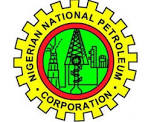
Last week, the Nigerian National Petroleum Corporation (NNPC) sought to explain why long queues of motorists have not disappeared from filling stations, particularly in Abuja and its environs. NNPC Group General Manager, Public Affairs, Garba Deen Mohammed, told newsmen that Abuja, which ordinarily requires about 180 trucks daily is being supplied 244 trucks in the past few days. Wondering where the 64 additional trucks went, he noted that the scarcity has not abated only because some marketers have embarked on sharp practices of product diversion and hoarding.
To start with, Nigerians are only too familiar with such statistics being thrown in their faces – statistics that they have come to take with a pinch of salt. Unlike the NNPC which prefers, like the ostrich, to bury its head in the sand, Nigerians surely understand that the supply situation is still a long way from what is required to turn things around. For Nigerians who have endured the agony of not having fuel to buy in the past few weeks, the observable rush to fill up their tanks would ordinarily seem understandable.
Now, even if we accept NNPC’s statistics and by extension its claims that an average of 64 trucks meant for Abuja and its environs are being diverted, the question is – what did the corporation do about what amounted to a sabotage of its efforts? While those trucks were loaded, whose responsibility was it to track them from the depots to their intended destinations? Is that not the role of the Department of Petroleum Resources (DPR)? Does it not amount to self-indictment that NNPC and DPR could not put in place a mechanism to track products lifted by the marketers?
Just in case both the NNPC and the DPR do not know, their corporate dereliction has grave implications both for the economy and the orderly conduct of players in the industry. Needless to state that the hoarding and diversion which these give rise to constitute a challenge to law enforcement.
This should not be hard to understand. Under the existing arrangement, the Petroleum Products Prices Regulatory Agency (PPPRA) sets the marketers’ margin as published in its price template. The margins, far from arbitrary, are accepted by the industry as fair, competitive and in accord with best practices.
As for the nefarious trade, this is how it works: products lifted at the depots are sold on the depot tarmac either with active collusion between DPR and NNPC officials, or with the officials looking the other way. The products are subsequently taken and sold at premium either at the black market or at filling stations owned by independent marketers. The marketers, free from the challenge of regulation, exploit the acute scarcity to inflict their greed and misery on the buying public. And while the price hits the roof, the NNPC whines about hoarding and product diversion!
Of course, it goes that while the scarcity may have created the huge incentive to hoard and hence the desire by marketers to make illicit gains, the reason it has persisted is because both the NNPC and the DPR are active collaborators. The two agencies are therefore, as complicit.
Far from being impressed by NNPC’s rationalisation therefore, Nigerians expect the corporation to focus on bridging the supply gaps to ameliorate the hardships posed by the current scarcity while also purging itself of the corrupt and unpatriotic elements within its ranks. The DPR on its part needs to wake up to its responsibilities of ensuring that actors play by the rules and to punish those who run foul of the law. By and large, we expect the NNPC to foster an atmosphere of free flow of products to ensure that Nigerians are not again put through avoidable hardships.
END

Be the first to comment